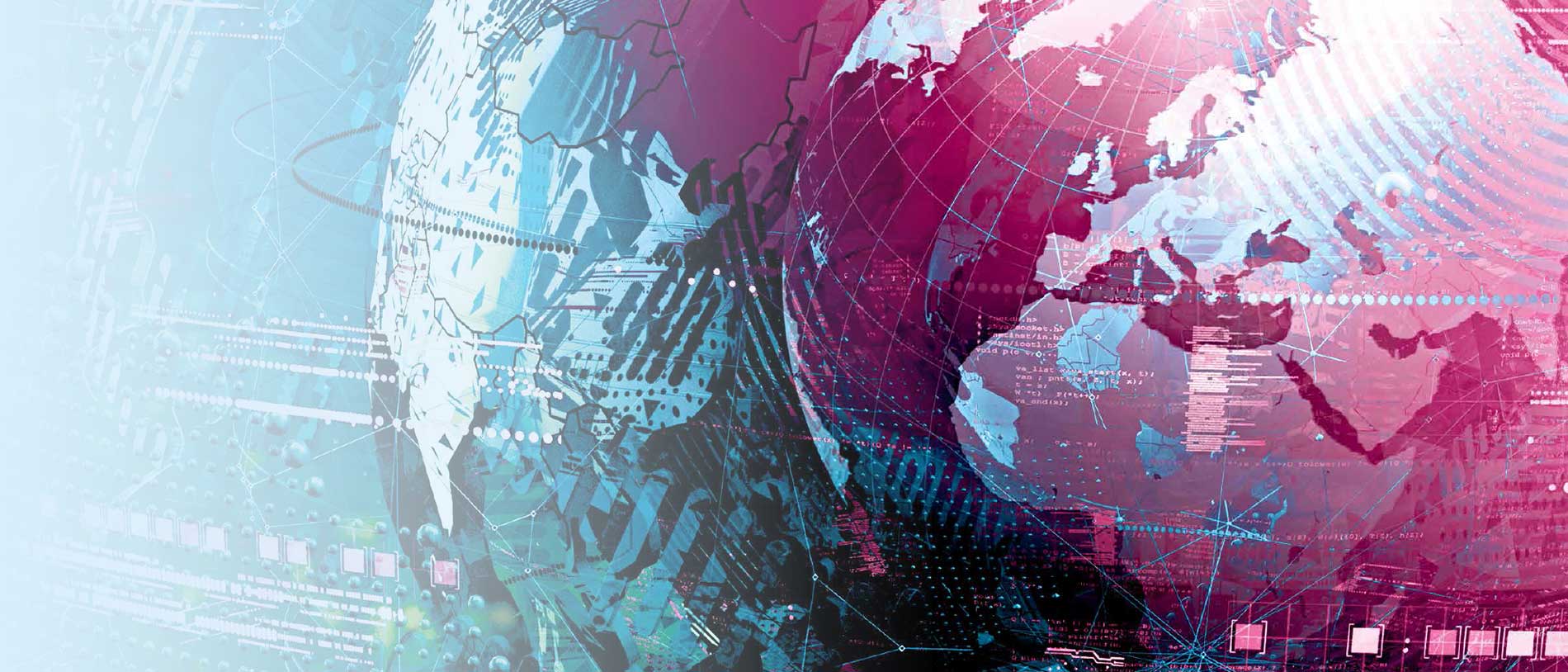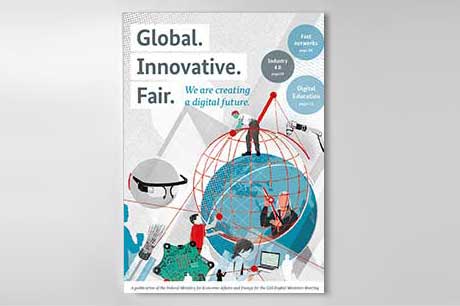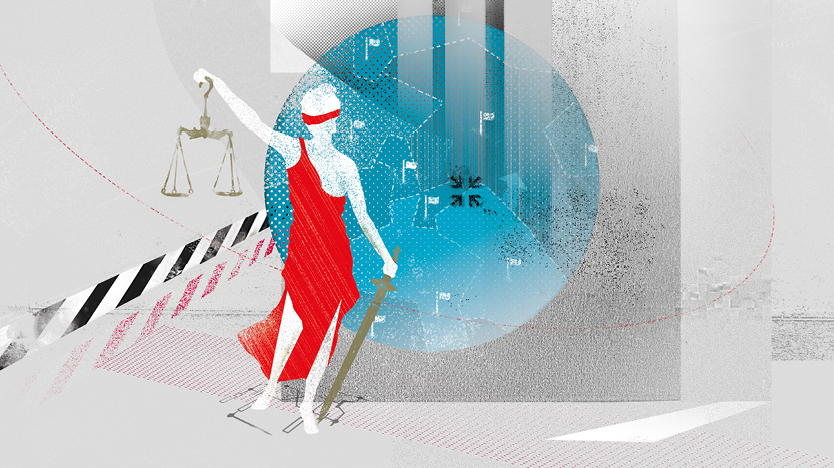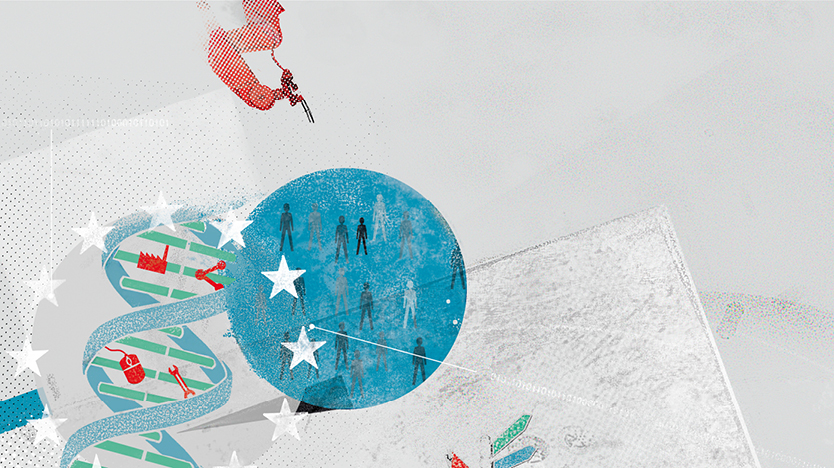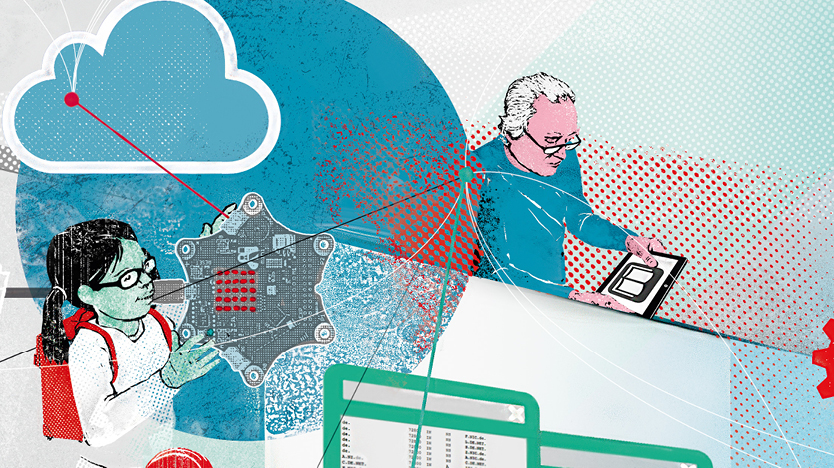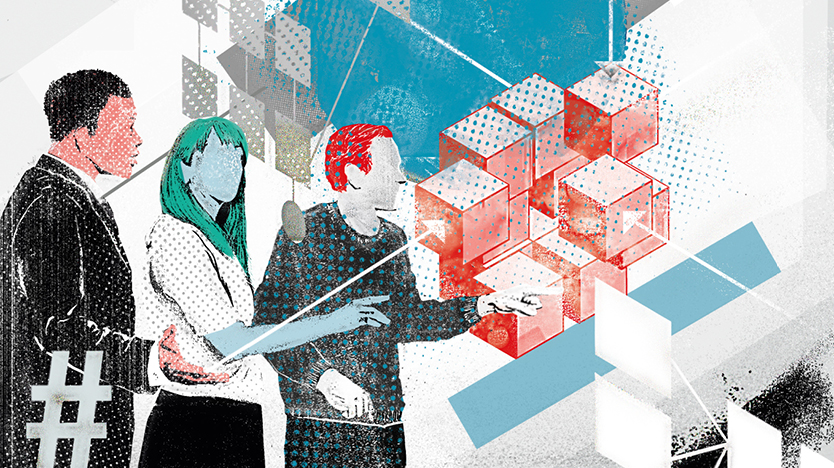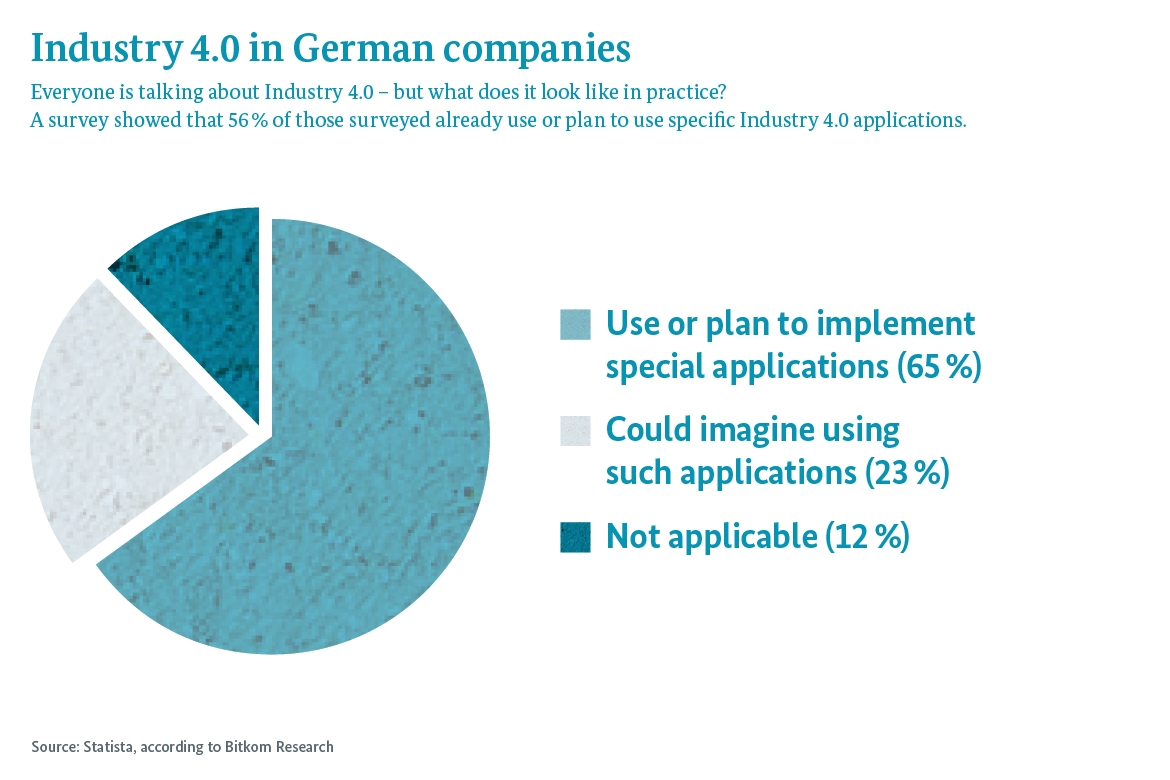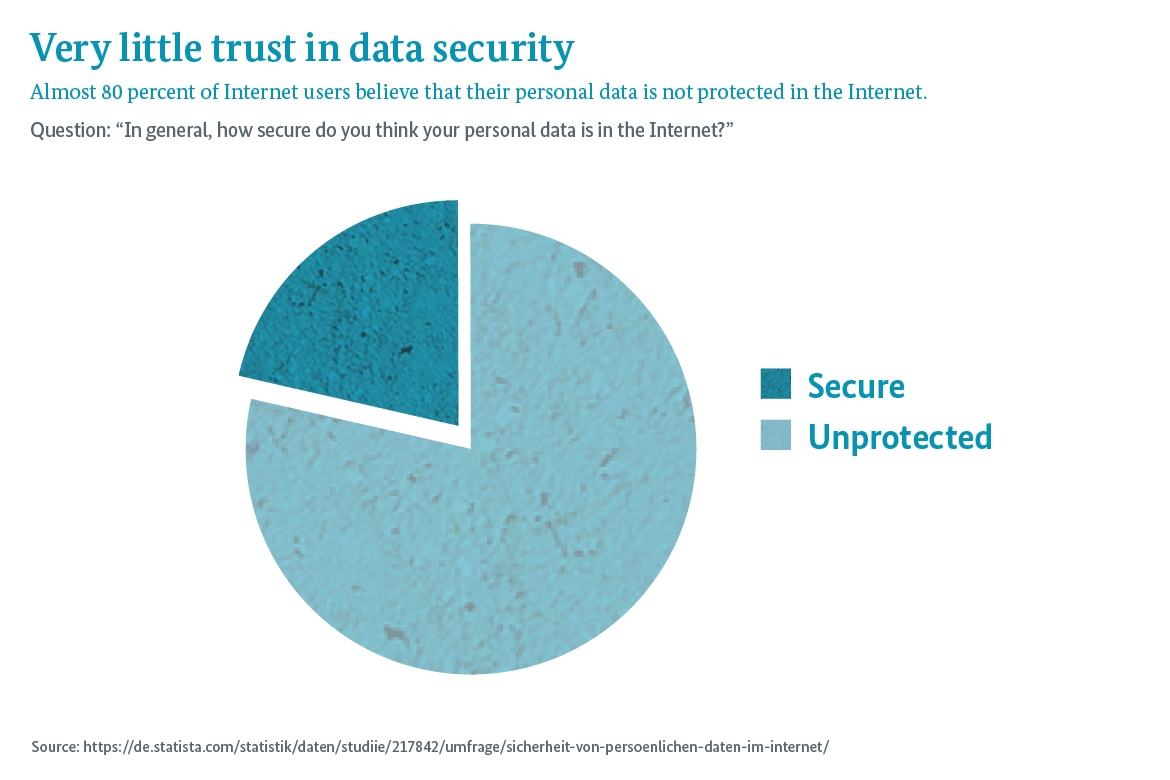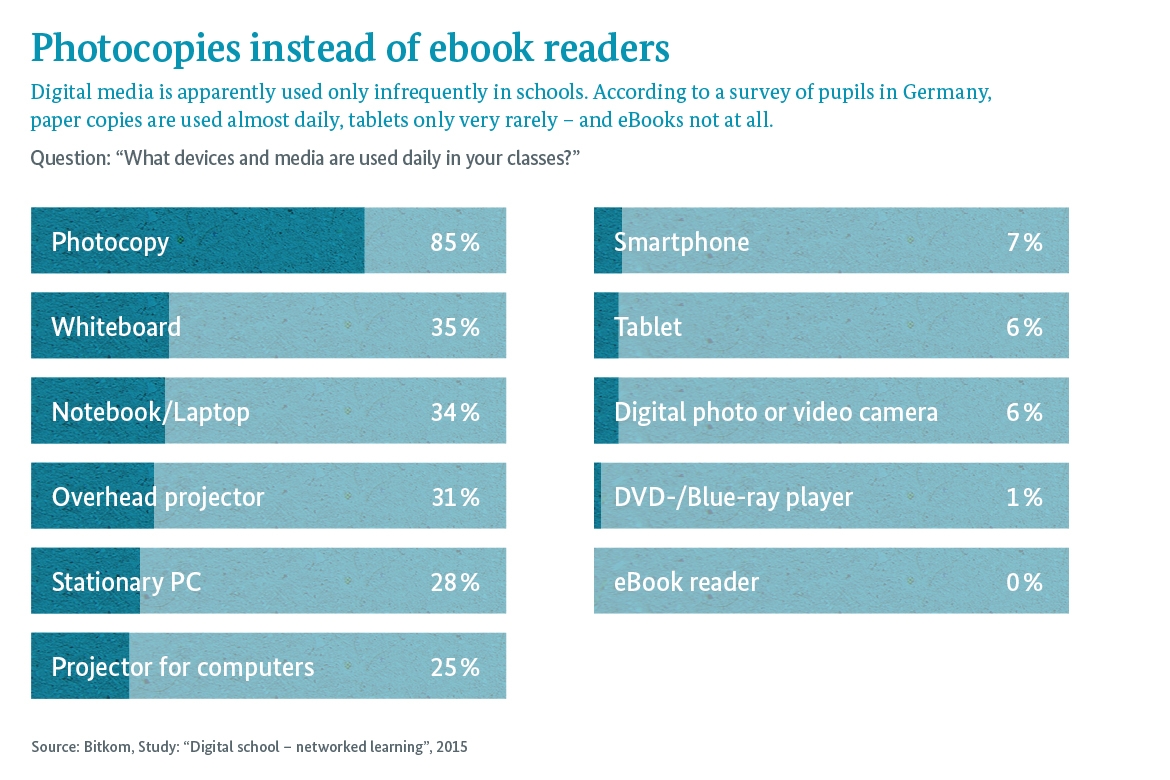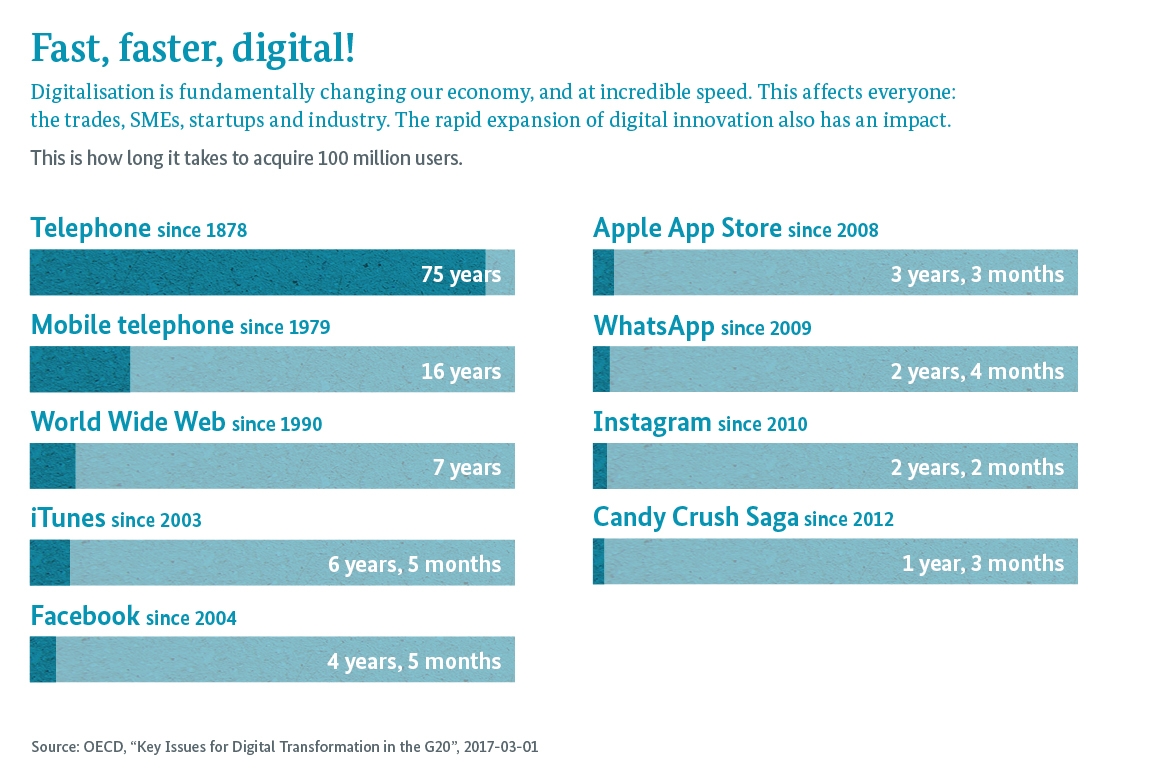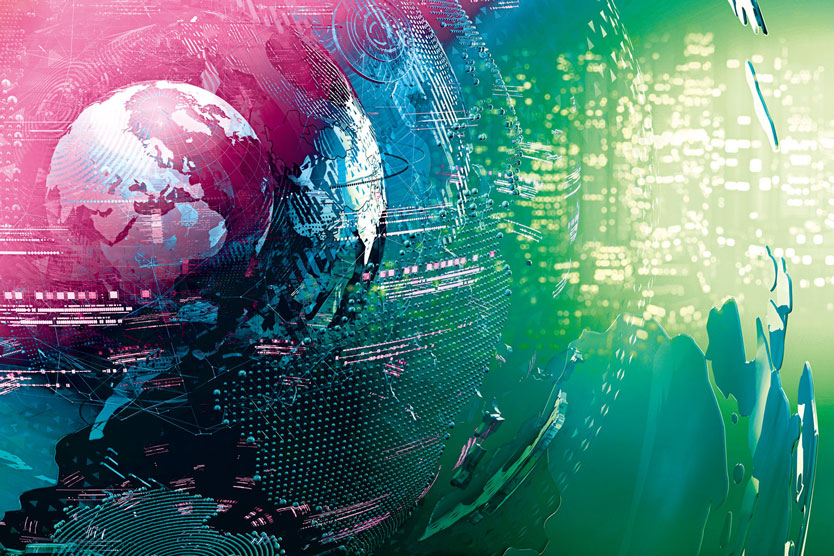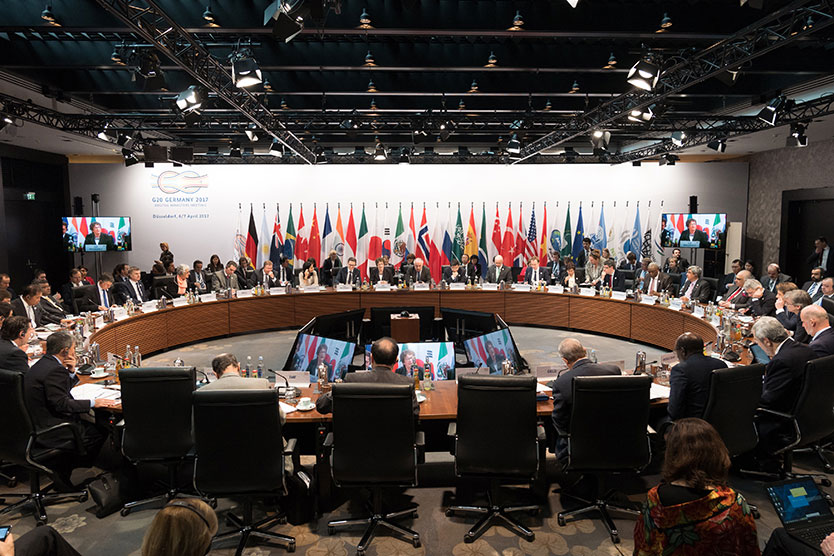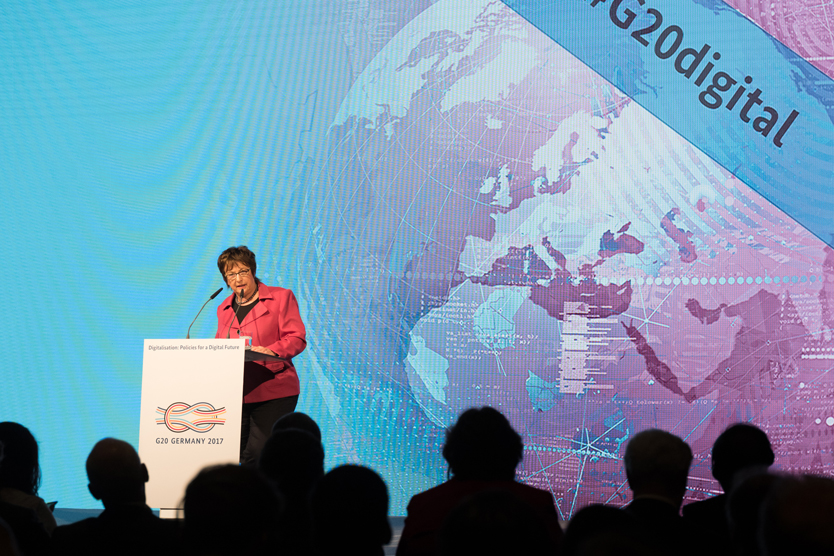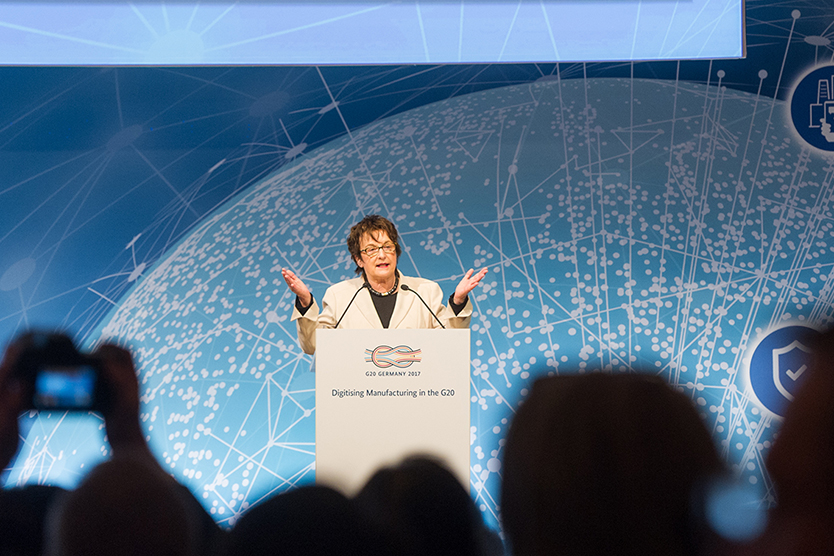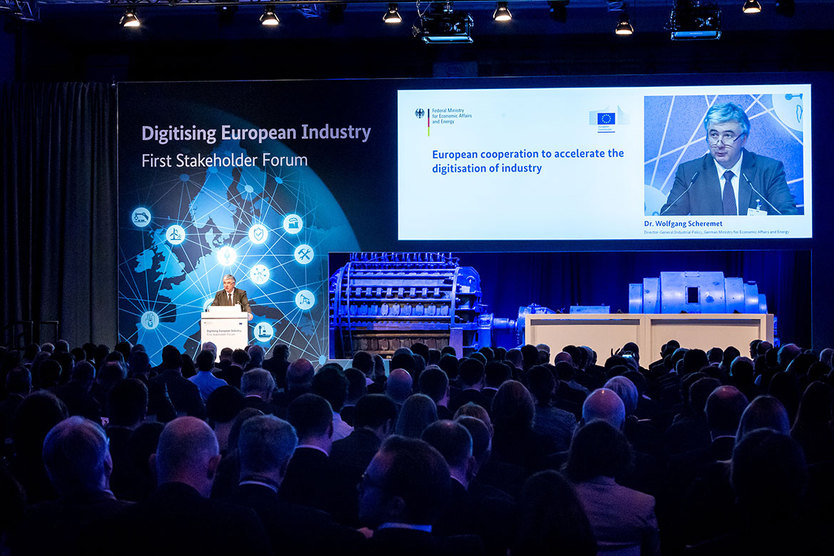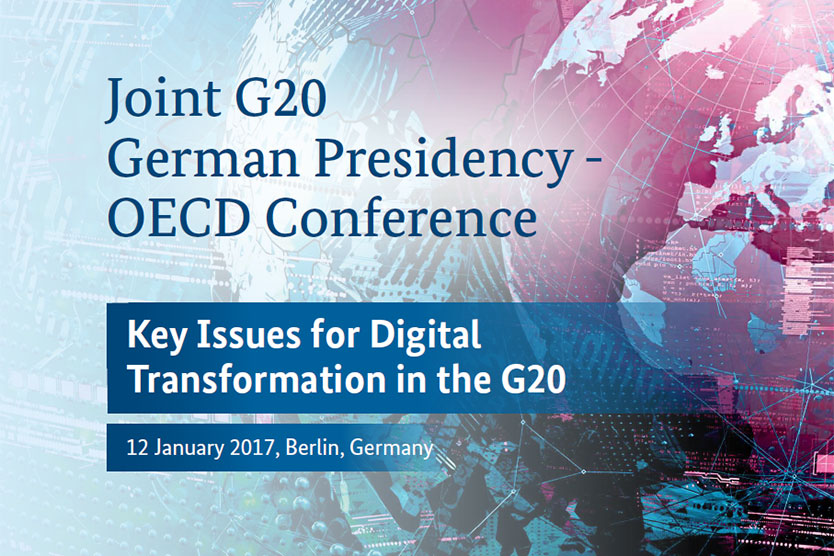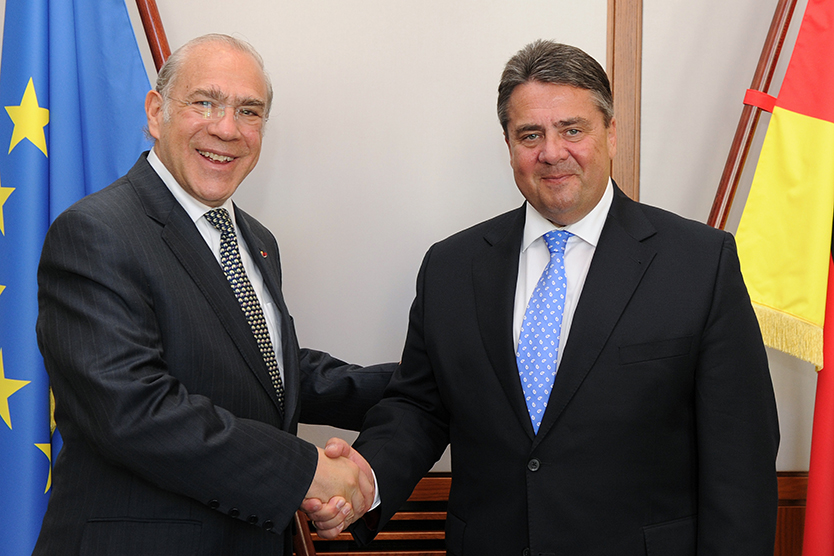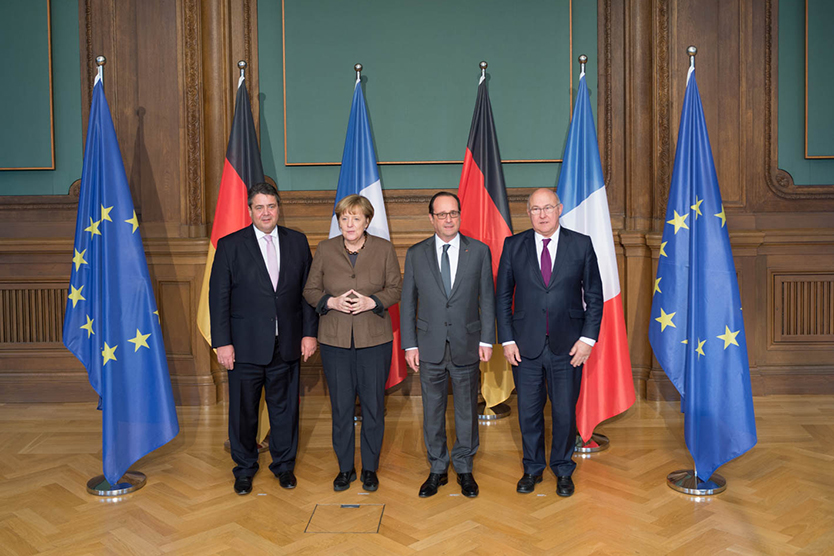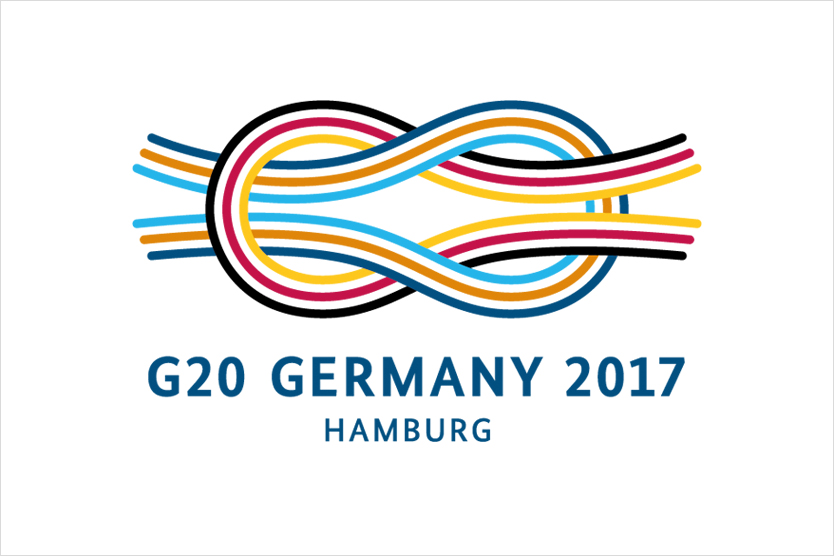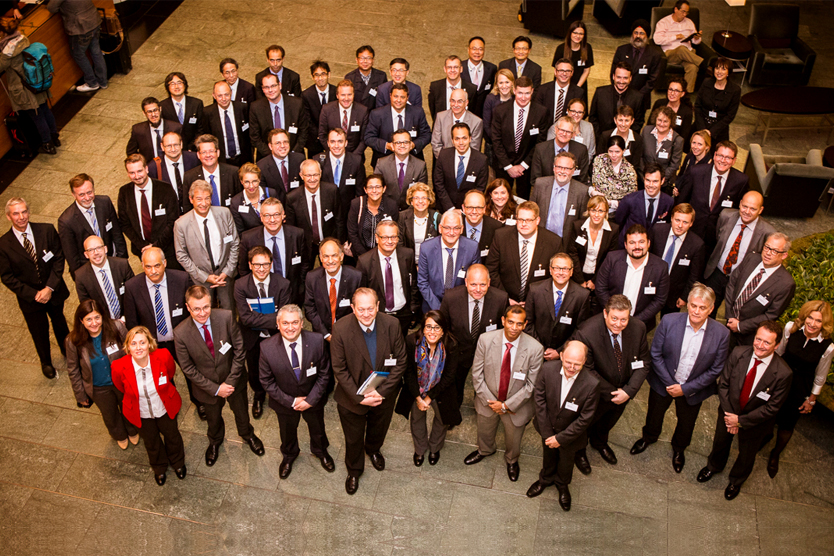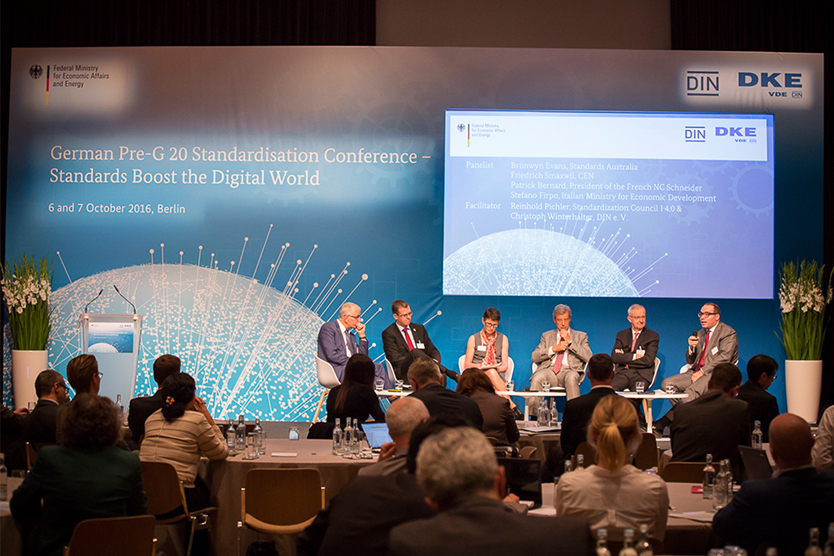Digitalisation is a driver of globalisation. Half of the world's population has access to the internet; there is hardly any company which does not rely on it for its business. Integrated value chains, Industrie 4.0, e-commerce, social networks and platforms mean that the world is coming ever closer together.
During its G20 presidency from 1 December 2016 to 30 November 2017, Germany hosted the first Digital Ministers’ Meeting ever to take place between the countries of the G20. This discussion process primarily focused on digitalisation as a key element for strong, sustainable, balanced and inclusive growth in the world economy.
If we want to make full use of the opportunities provided by digitalisation for the benefit of all people, we will need a joint, international framework for action. When it comes to shaping digitalisation, the core objectives of the Federal Ministry for Economic Affairs and Climate Action are to achieve transparency, legal certainty and a fair framework for competition on the internet, as well as to ensure data sovereignty, the harmonisation of standards for Industrie 4.0, and the promotion of digital education.
In the run-up to the meeting of the G20 Digital Ministers, the OECD joined with the Federal Ministry for Economic Affairs and Climate Action (BMWK) to host a conference entitled ‘Key Issues for Digital Transformation in the G20’, held in Berlin on 12 January 2017. At this conference, a study entitled ‘Key Issues for Digital Transformation in the G20’ was presented. The study – which had been conducted by the OECD on behalf of the Federal Ministry for Economic Affairs and Climate Action – highlights the importance of adopting policies that promote fair competition, confidence in the digital economy and access to digital technologies and the knowledge that is necessary to use them. Using the study as a basis, some 300 participants from the G20 countries developed and discussed policy recommendations and measures with a view to ensuring that all people benefit from the opportunities held by digitalisation.
Following on from the Chinese G20 presidency, a Task Force for the Digital Economy was created. This Task Force worked together with the OECD to develop a work programme that seeks to identify the core fields of digital policy in the short-term future. The aim is to use the next few years to fully harness the potential of digitalisation in the interest of economic growth and for social progress.
In order to build upon this work, the digital ministers from the G20 and a number of guest countries (including Spain, Norway, the Netherlands and Singapore) convened in Düsseldorf for a conference entitled ‘Digitalisation: Policies for a Digital Future’. The conference focused on three areas:
![To homepage Logo [EN]de.digital](https://www.de.digital/SiteGlobals/DIGITAL/StyleBundles/Bilder/sublogo_de.png?__blob=normal&v=1)
